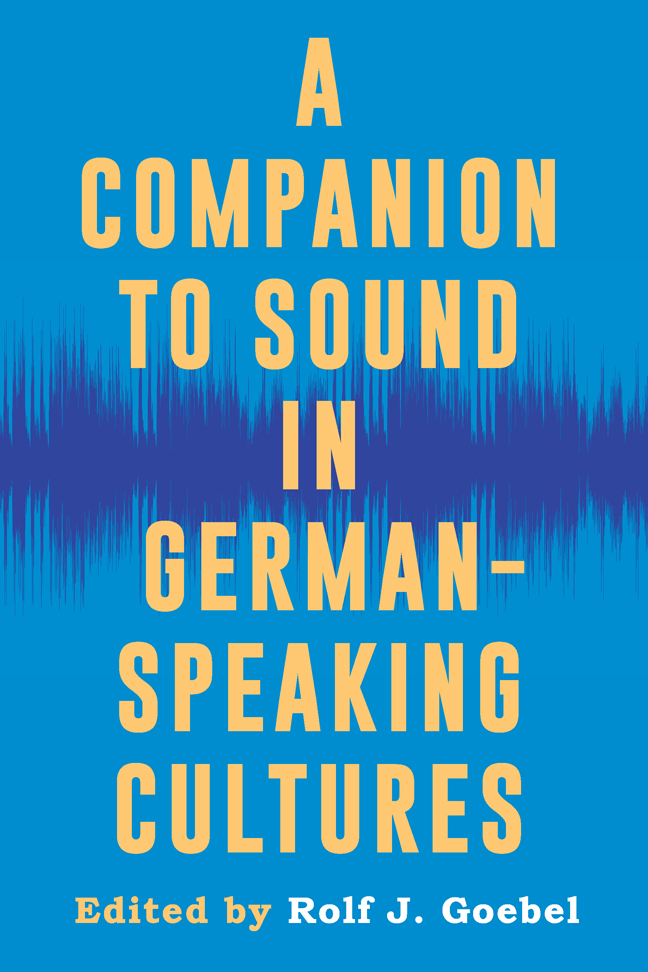Book contents
- Frontmatter
- Contents
- List of Illustrations
- Preface
- Introduction
- Part I Sonic Practices from the Middle Ages to the Nineteenth Century
- Part II Rediscovering the Sounds of Modernism
- Part III Listening to the Unbearable: The Sounds of National Socialism and the Holocaust
- Part IV After the Catastrophe: Sounds in Postwar Germany and Beyond
- Part V Sounds of the Present
- Part VI Epilogue
- Select Bibliography and Further Reading
- Notes on the Contributors
- Index
1 - Soundscapes in Medieval German Literature
Published online by Cambridge University Press: 21 February 2024
- Frontmatter
- Contents
- List of Illustrations
- Preface
- Introduction
- Part I Sonic Practices from the Middle Ages to the Nineteenth Century
- Part II Rediscovering the Sounds of Modernism
- Part III Listening to the Unbearable: The Sounds of National Socialism and the Holocaust
- Part IV After the Catastrophe: Sounds in Postwar Germany and Beyond
- Part V Sounds of the Present
- Part VI Epilogue
- Select Bibliography and Further Reading
- Notes on the Contributors
- Index
Summary
I. Introduction
Sound Studies Have Become well established in the Humanities, and to some extent also in German Studies. The field investigates the interaction between sonorous elements and literary protagonists who find themselves immersed in a world of auditory sensations sometimes called “soundscape ecology.” Sounds carry meaning and are relevant in epistemological terms, especially because we as humans perceive them the fastest in comparison with all other sensations (visual or haptic) and are most responsive to them.
Research, however, is just at the beginning of exploring many materials, theoretical implications, aesthetic dimensions, and, ultimately, the critical question of what soundscapes really mean in the premodern context, and how they are constitutive for human culture. At closer analysis, we are dealing with an aesthetic and hermeneutic phenomenon, especially within a literary context, since we have no historical recordings of premodern music and are lucky if some manuscripts contain traces of musical scores, such as the neumes (see, e.g., the Carmina Burana, ca. 1220 or 1230). However, many literary events and actions in medieval texts are embedded in a soundscape, and the more we investigate the musical environment of human activities, exchanges, monologues, and conversations, the better will be our grasp of the ideas expressed in these narratives or poems.
II. Premodern German Soundscapes
My focus rests on medieval German literature, where we find numerous examples of music being the determining factor in plot and character development; where it serves as the critical catalyst for moving the protagonist/s into ethereal, spiritual, amatory, or divine dimensions; and where it contributes critically to the establishment of narrative or poetic meaning. Most specifically, music makes possible the experience of erotic love and/or of the Godhead, since it was part of the quadrivium, the keystone of the divine cosmos, as taught already by Martianus Capella in his De nuptiis Philologiae et Mercurii (early fifth century) and by Boethius (De institutione musica ca. 505).
- Type
- Chapter
- Information
- A Companion to Sound in German-Speaking Cultures , pp. 19 - 35Publisher: Boydell & BrewerPrint publication year: 2023



